Why ice cream won't help your sunburn but oatmeal will
- Published

After catching some rays on the hottest day of the year, some of us may be feeling a bit pink today.
Obviously the best way to avoid sunburn is to wear sunscreen but what if you forgot and got burnt?
There's lots of advice on what to do and some of it can be a bit misleading.
Newsbeat's been speaking to Dr Nisith Sheth from the British Skin Foundation who tells us what is good - and what isn't - for burnt skin.
Ice cream
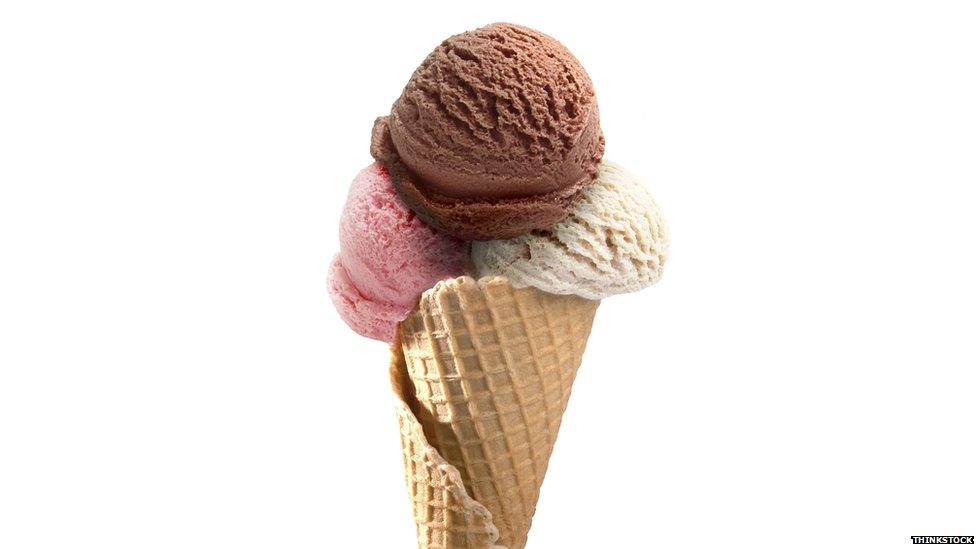
When your skin is burning up, it may be tempting to cool off with the coldest thing you can find on the beach.
But Dr Nisith Sheth says putting ice cream on your skin is not a good idea.
"Whilst the cooling affect of the ice cream may reduce the inflammation, the contents of the food can introduce things like infection.
"It's also very messy as well."
A cup of oats
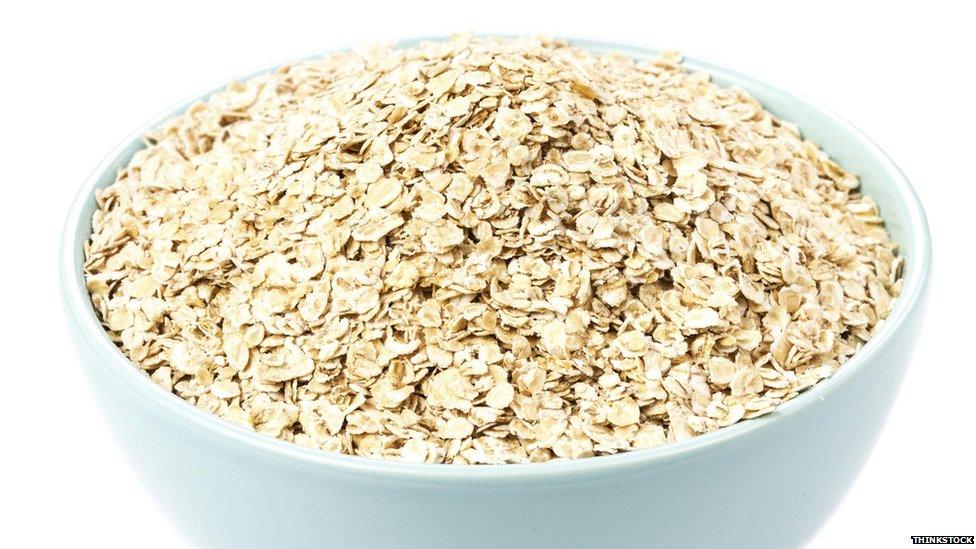
Oats have been known for a long time to have healing powers and lots of lotions you can buy in the shops have oats in them.
Adding a cup of whole oats to a cool bath is often recommended to help sunburn.
This is something Dr Nisith Sheth does agree with.
"Oats - and oatmeal - have been well known to reduce inflammation, and they're in some commercial brands to treat things like eczema, because of its anti-inflammatory effects.
"But there are much easier ways of treating sunburn, with anti-inflammatory creams and other products."
Eating watermelon
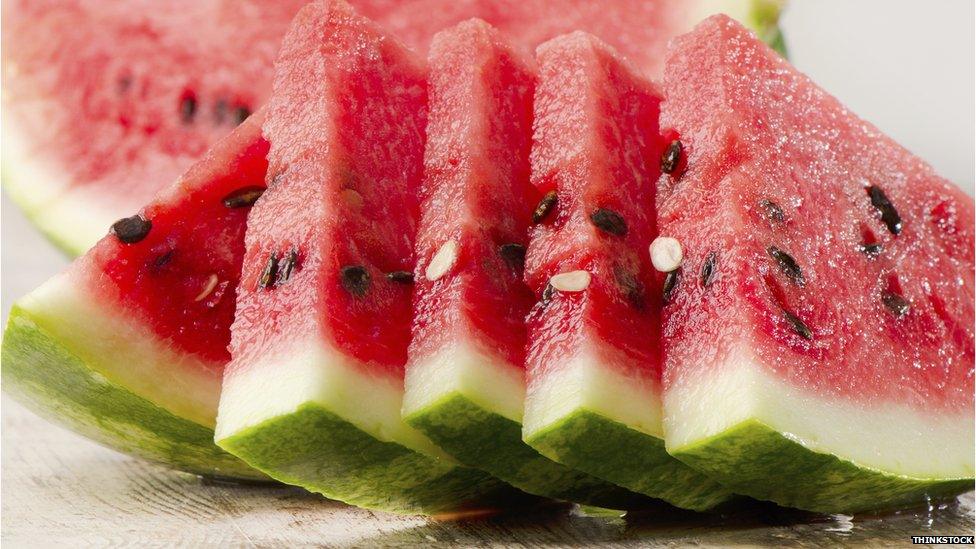
We know that we should drink plenty of water when it's hot but keeping hydrated when burnt is also essential.
Munching on water filled fruit like watermelon can help but it also has another benefit too.
"Watermelon, like a number of other fruits, contain ingredients called lycopenes which do have some sun protect factor," Dr Nisith Sheth explains.
"But this is quite minor.
"Whilst it's beneficial to overall health, and as an overall programme of sun protection itself, is not going to treat sunburn."
Milk
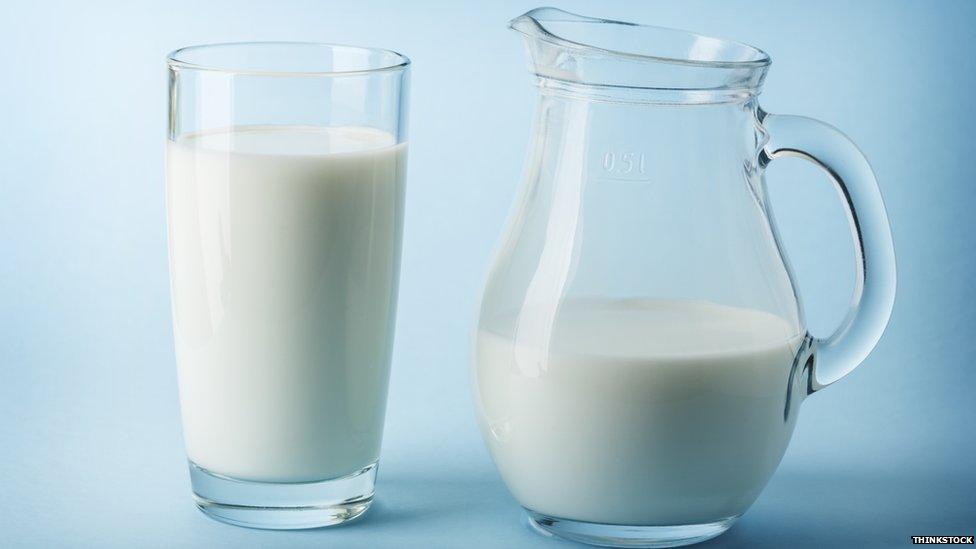
Some people claim that using a cool compress soaked in milk can calm the burn.
Dr Nisith Sheth told Newsbeat that "using milk in a gauze to cool down sunburn does have a cooling effect and anti-inflammatory effect but the other ingredients in milk can lead to other problems.
"Milk contains lactic acid which can cause irritation to the skin."
Vinegar
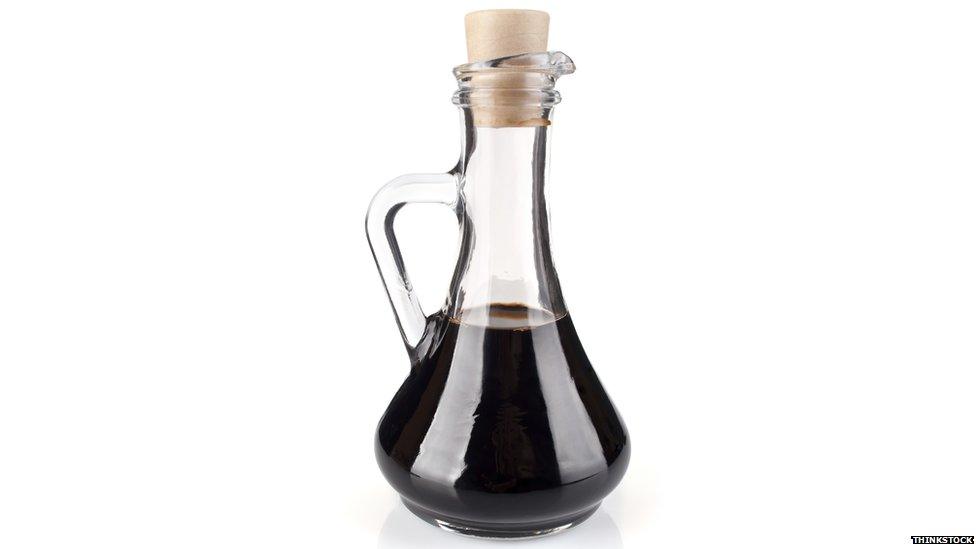
You may be more used to putting vinegar on your chips at the seaside but some people reckon it helps heal sunburn.
"People do use apple cider vinegar for skin problems and it can have a beneficial effect," Dr Nisith Sheth explains, "but the acid in it can cause irritation to the skin."
Aloe vera
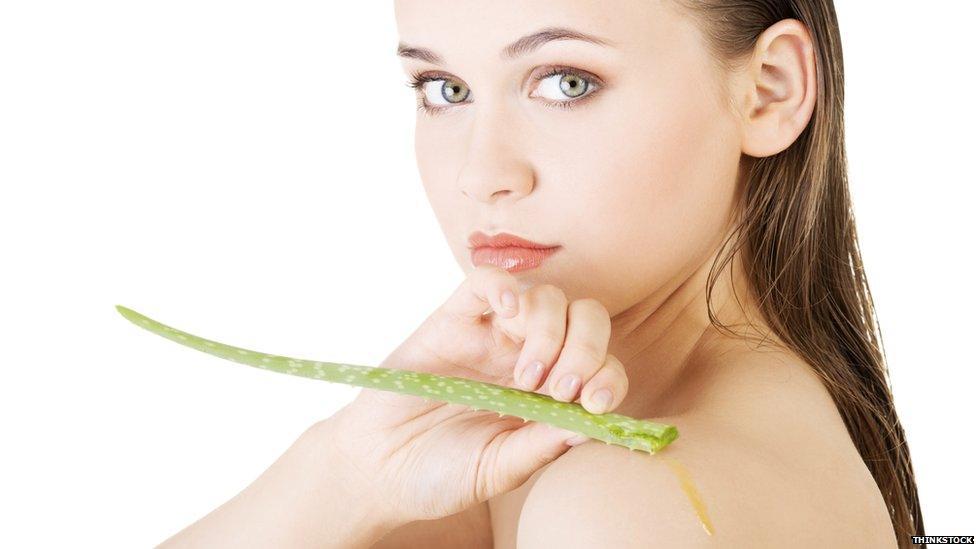
This is the one thing that doctors do recommend. In fact you've probably already seen it on the bottle of your after sun lotion.
"Aloe vera certainly does have an anti-inflammatory effect and can be helpful with sunburn." Dr Nisith Sheth told Newsbeat.
"It's been well used for skin complaints but be careful not to apply it onto broken skin as it can induce a contact allergy.
"But it can be helpful to reduce sunburn."
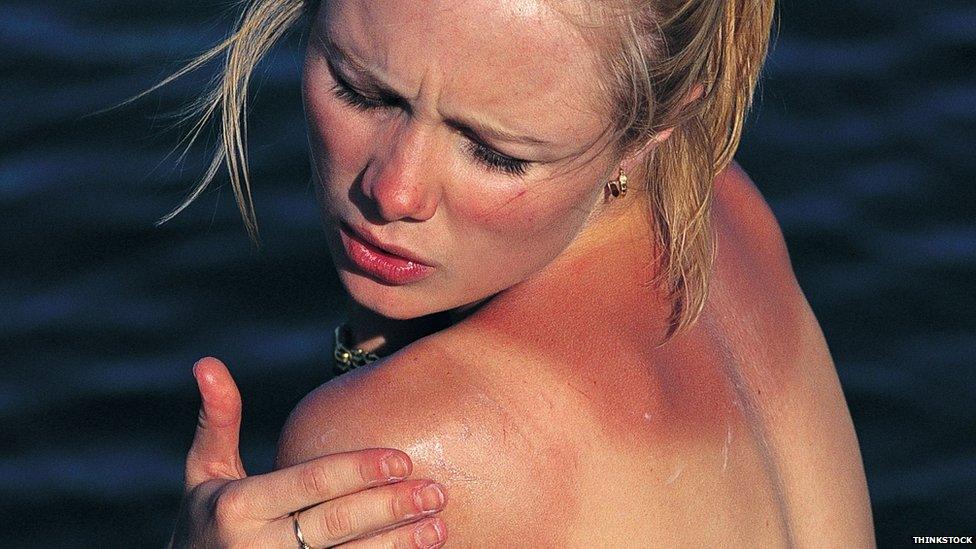
So what does work?
Here are some tips from the British Skin Foundation:
1. Pain relief
Painkillers can help relieve the pain and reduce inflammation caused by sunburn.
2. Cool the skin
Apply a cool compress to the skin e.g. a towel dampened with cool water for 15 minutes, or take a cool bath or shower. If blisters are starting to develop, then have a bath.
3. Moisturise
After a bath or shower, use an un-perfumed cream or lotion to soothe the skin. Aloe vera or soy containing gels or lotions can be beneficial in soothing the skin. Aloe vera not only has a cooling effect on the skin but also acts as an anti-inflammatory.
4. Stay hydrated
Sunburn can encourage fluid loss through the skin. Drinking plenty of water will prevent dehydration and help your body recover. Alcohol should ideally be avoided during this time as it will make dehydration worse.
5. Use of mild steroid cream
Using a weak steroid cream such as 0.5-1% hydrocortisone for 48 hours may decrease pain and swelling caused by sunburn and speed up the healing process.
6. Leave blisters alone
Try not to pop blisters as this can lead to infection and scarring. They will settle by themselves after a few days. In the meantime, treat the skin gently.
Find us on Instagram at BBCNewsbeat, external and follow us on Snapchat, search for bbc_newsbeat